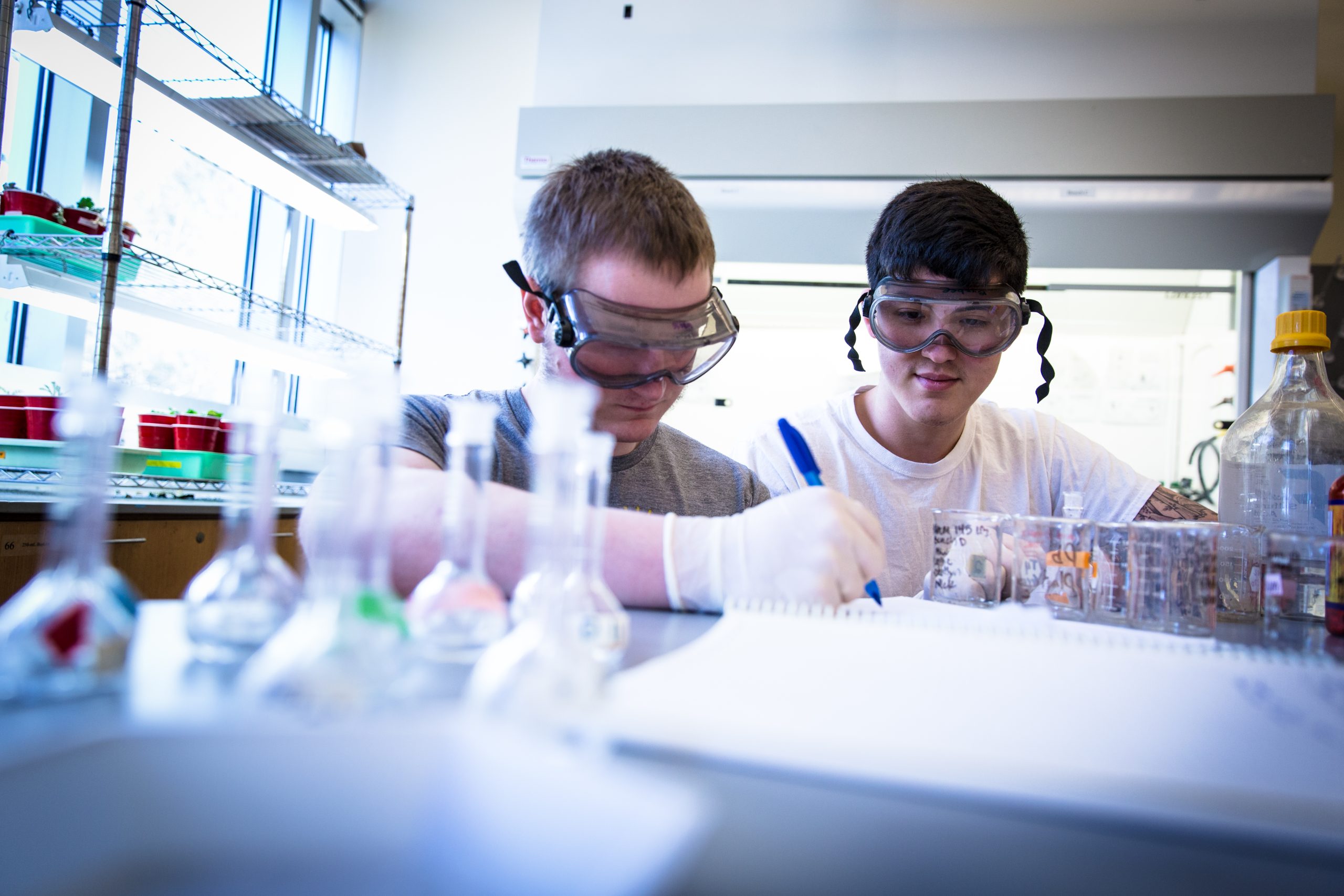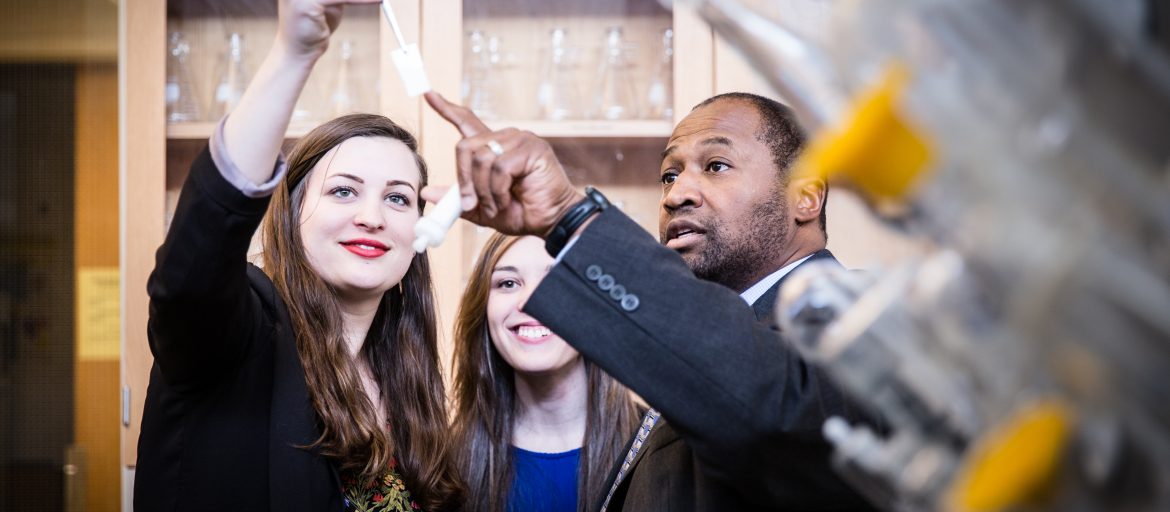Research Opportunities

High Impact Research
UNC Asheville’s nationally recognized undergraduate research program and the Department of Chemistry and Biochemistry’s longstanding tradition of undergraduate research is one of the strengths of the chemistry major. Undergraduate research is one of the best educational tools to transform students into chemists.
- Provides hands-on experience using chemical equipment, instrumentation, and theoretical software
- Solidifies foundational curriculum through use and practice
- Expands students’ critical thinking and scientific writing skills to a very high level
of UNC Asheville students participate in undergraduate research
students and alumni have been awarded prestigious Fulbright Scholarships
National Conference on Undergraduate Research Member

In the Spotlight
Jump Start Your Career with Undergraduate Research

Jump Start Your Career with Undergraduate Research
The Undergraduate Research Program at UNC Asheville empowers students to design and conduct original research in partnership with faculty mentors. Open to all undergraduates, the program supports scholarly and creative projects across all disciplines, with opportunities to earn academic credit, present at conferences, and publish in the university’s research journal. Students develop independent inquiry skills while working closely with faculty to pursue questions that matter to them. The program offers funding, symposia, and national recognition, including a University Research Scholar designation for those who both present and publish.
Ready for What's Next?
Earn a Bachelor of Arts or Bachelor of Science in Chemistry from the University of North Carolina Asheville and prepare for a successful career in pharmaceuticals, environmental science, chemical engineering, education, medicine, and beyond.




